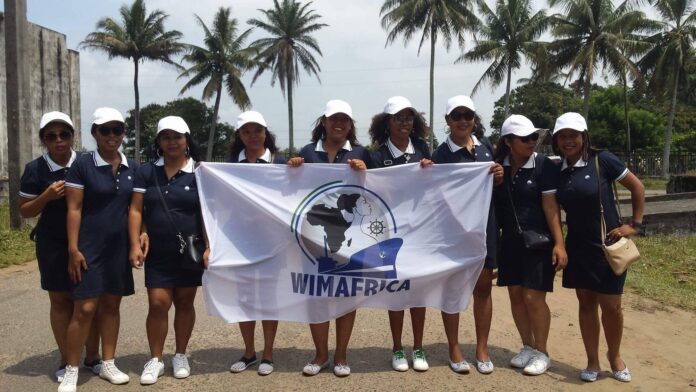The monthly meeting of Women in Maritime Africa (WIMAFRICA), Nigeria Chapter, has held in Lagos with a call for women’s active participation in the shipping business.
Mr. Demand Martin, the Business Manager, Klmpt Harkulson, said it was important to open the eyes of women to enable them own, manage and run ships.
He said that women should look beyond participating in the clearing and forwarding business but to also participate in the bigger part of International trade in the maritime business.
He said that there were a lot of opportunities in the coastal trade for women, as well as in the off-dock terminals.
He lamented the collapse of coastal shipping services in Nigeria, noting that women are well placed to explore the opportunities in the service and other aspects of shipping.
Provision of coastal shipping services for regular movement of cargoes and persons within West Africa, he explained, holds great opportunities for maritime entrepreneurs as leaders in the subregion seek to boost intra-regional trade.
Coastal shipping would provide more cost effective mode of commerce for Nigerian business men and women as road transport continues to dominate the movement of goods and persons, he said.
Martins said coastal shipping which was the major means of trade in West Africa when a number of Nigerian shipping companies provided scheduled ferry services for many decades still holds bright prospects for investors.
“There are two types of shipping trade, which are Liner and Tramp trade. Tramp trade operates like private cabs and are booked on an ad-hoc basis, while liner trade vessels sailed along pre-determined routes and on fixed schedules, much like boarding a public bus which runs the same routes daily.
“For most container lines, it is common to see services planned along major trade lanes or hubs, where they have introduced a service into trade lane, where they are hoping to make an entry.
“Liner trade can be divided into two, such as direct service and transshipment service. A direct shipping line offers a service that connects origin ports directly to destination ports.
“Trans-shipment services on some trade lanes may be difficult to achieve full utilisation of vessels directly from each port of origin.
“To counter this, some shipping lines consolidate their cargoes from different origins into hub ports, from which larger volume of cargo for each location can be loaded to the next destination,’’ Martins said.
He, however, advised women in shipping to always be mindful of factors affecting liner trade, such as customer requirements, profitability, vessel availability and port availability.
The Continental President of WIMAFRICA, Mrs Jean Chiazor-Anishere, urged maritime women to always engage in training and workshops, to enable them to invest in shipping.




